'The physio told me I might have a problem walking in the future because of the back injury and that I need to stop playing cricket.'
'But I was very keen that I kept playing.'
'I told him just get me pain free and I will make a comeback.'
'And I did exactly that.'
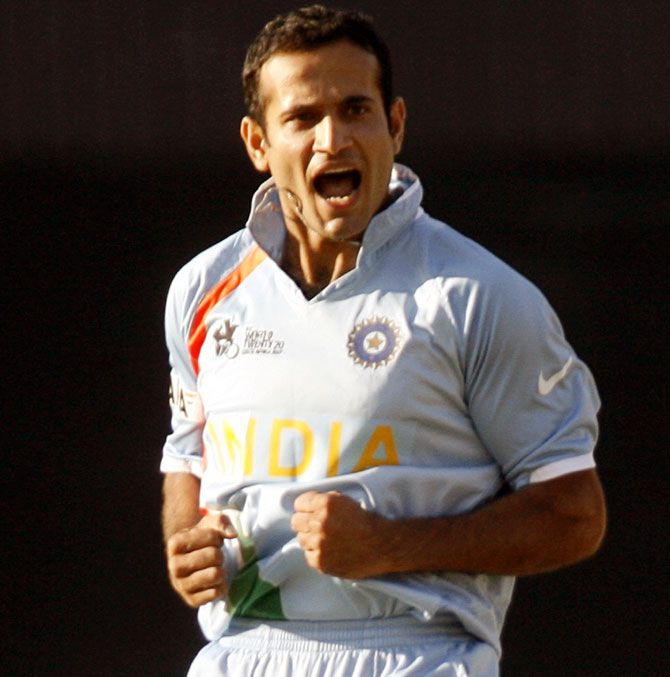
Irfan Pathan emerged on the scene with a bang as a 19-year-old pacer who could literally make the ball talk.
After his breakthrough series in Australia in 2003-2004, where he produced a beauty to clean up Adam Gilchrist in the Sydney Test, it was no surprise that the Baroda seamer was compared to Pakistan's pace legend Wasim Akram.
Pathan then showed Pakistan his class as he took 12 wickets in Tests and eight wickets in ODIs as India won its first Test series in Pakistan in 2003-2004.
He seemed to reserve his best for Pakistan. In the 2007 World T20 final against Pakistan, Pathan bowled a match-winning spell of 3/16 and was named the man of the match as India won the first T20 World Cup.
He also became the first and the only bowler to take a hat-trick in the first over of a Test -- and that feat was also achieved against Pakistan when he dismissed Salman Butt, Younis Khan and Mohammad Yousuf in the first over of the in the Karachi Test in 2006.
A sterling example of Pathan's all-round performances came in the Perth Test in 2007-2008. He took five wickets in the match and scored 46 crucial runs in the second innings as India won its first-ever Test in Perth. Pathan was the man of the match. He was then part of the Indian team which won the VB tri-series one-day tournament in Australia.
Unfortunately, Pathan played only one more Test for India after his heroics in Perth. Injuries hampered him greatly, including a back injury in 2010 when doctors almost ruled him out of cricket.
But Pathan never gave up and after working hard on his fitness and rehab for more than a year, he made a comeback to the Indian team in the limited overs format in December 2011.
Even though statistics would show that he struggled to pick wickets, the pacer points out that what the numbers don't show is that he was now assigned the role of bowling one change and containing the runs in the middle overs.
He is disappointed that despite the criticism, no one from the team came out to openly support him, as he was only doing the role assigned to him.
In what turned out to be his last appearance for India in ODIs in August 2012, he picked up 5/61 along with a quickfire 28 and was named man of the match in a game against Sri Lanka.
Shockingly, he was never called up again in the 50-overs format.
"The player who is ready to sacrifice for the team, if you don't support him and back him, then you are taking him on the path where you are looking to sideline him," Pathan -- who played his last game for India aged just 27 -- tells Rediff.com's Harish Kotian.
The first of a revealing multi-part interview:
Having retired earlier this year, this lockdown must have given you time to reflect on your career. How do you sum up your career?
In terms of achievement, there could have been a lot more.
I really believe that in One-Day Internationals I could have been the best all-rounder that India ever produced, I could have been.
That didn't happen because I didn't play as much cricket as I could have because my last game for India was at the age of 27.
I see people playing till the age of 35 or 37 like England fast bowler (James) Anderson. Obviously the conditions in England are different.
I think if you play till 35, things would have been better, but that's gone, it's done and dusted.
I am grateful and blessed that I have been able to represent the country.
I got so much love. I still get so much love and respect from the people and I can't thank them enough.
I come from a very humble background where my parents didn't have much facilities.
After working 14 hours a day, my father used to earn only 3.500 rupees and he had to fulfill the needs of his family of five people. He really worked hard.
- MUST READ: Genius in the time of hate and bloodshed
And from there to now, where we are able to give jobs to people in some way or the other in our academies.
When I see those people earning much more through us than my father used to earn, it feels really great.
God has been really kind that we have been able to make the difference in people's lives. And I believe this is the most important thing.
So whatever matches I played, I played as a match-winner, I played as a guy who made the difference to the team.
Even if I took one wicket -- the first wicket for the match -- that made a big impact on the team.
Whatever innings I played with the bat, I played to make a difference.
That's what will stay with me throughout my whole life.
You had a fantastic start to your career in limited overs cricket. You were the fastest to 100 wickets in ODIs in 59 matches (Mohammed Shami broke the record earlier this year, getting to the feat in 56 matches).
But after that, you managed just 73 wickets in 61 matches.
Was it disappointing that somehow you didn't fulfill the enormous potential you showed at the start of your career?
Injuries and everything else are part and parcel of the game.
I am not the first player nor will be the last player who will get injuries.
The one thing I always get disappointed is that a lot of people only see the numbers and numbers don't always give you the right picture.
If you see the first 59 ODI matches that I played, I got to bowl with the new ball.
And when you are the new ball bowler, you got the opportunity to bowl with the new ball as well as the old ball.
Your aim, your mindset, your body language and your responsibility is to take wickets.
But when you are bowling first change, your role changes as well, your role becomes defensive.
When you are bowling first change, when you are a defensive bowler according to your captain and coach, you have to play the role of containing the runs.
You have to make sure that you don't give away too many runs.
So if your role becomes different, then your numbers also become different as well.
I actually feel that people from the team should have spoken about it. They should have said that, 'Yes Irfan used to take wickets, but now we have given him a different role. We have given him the role of first change bowler and someone who can bat at No 7 or No 8, which is very much required in One-Day cricket right now.'
Now, if an all-rounder goes for around six runs per over and takes one wicket per match you are happy with that, but you were not happy with Irfan Pathan who did the same thing. Why is that?
If you look at the numbers, it suddenly started changing when I started bowling with the new ball again in 2012.
When I came back into the Indian team, I took five wickets as well in my last match.
I am not saying that I could only bowl with the new ball. No, I was ready to bowl with the old ball, I was ready to bowl with the new ball as well.
But in a team game, when you have a different role, your numbers reflect differently.
When Mahendra Singh Dhoni was the captain, he used to be very flexible in his batting order, so his numbers used to be different.
Now when he is not flexible, obviously his numbers are getting affected. That is why either his average or strike rate will also get affected.
It's a team game. It's not only about individuals.
The player has to be flexible, but if his role has been given differently, then it is the team's responsibility to talk about it, but no one talks about it.
In other words, even though you played a defensive role for the team, it went against you.
It went against me, only because people from the team didn't talk about it. They should have spoken about it.
Today, if a certain role has been given to Rishabh Pant to let him play freely, then people back him as well.
You can see Virat Kohli talk about Rishabh Pant at the press conferences that we are backing him even if he has failed in certain games because they see the potential and they know that he has been given a certain role.
If any player is doing a role for the team, then you need to back him.
So when you talk about my numbers, then this is the reason. Obviously, I would have loved to bowl more.
And if you are talking about numbers, then the player who had taken five wickets before he got injured then he should be brought back once he recovers. Then why didn't you bring him back?
If you are talking about numbers, then you should stick by it. And if you are talking about the role in the team, then it is your job to back him that we have been giving him a different role.
So when there was talk going around that Irfan is focussing more on his batting, and that is why his bowling has lost the edge, nobody spoke that Irfan is playing a different role for the team.
Exactly.
Basically, the player who is ready to sacrifice for the team, if you don't support him and back him, then you are taking him on the path where you are able to sideline him.
But what is gone is gone, no point dwelling on it.
I am saying it again -- I am very grateful that I have been able to play a part in the historic T20 World Cup win in 2007.
I have been part of some amazing memories of Indian cricket, like the world record of winning 15 or 16 consecutive matches while chasing under Rahul Dravid (17 consecutive successful run chases in ODIs -- 15 under Dravid's captaincy and two under Sourav Ganguly).
I was part of the team which won the VB tri-series (ODI series) in Australia in 2008. That was a big achievement at that time because Australia was quite strong at that time.
So I was really to have played a role in some of the memorable moments of Indian cricket.
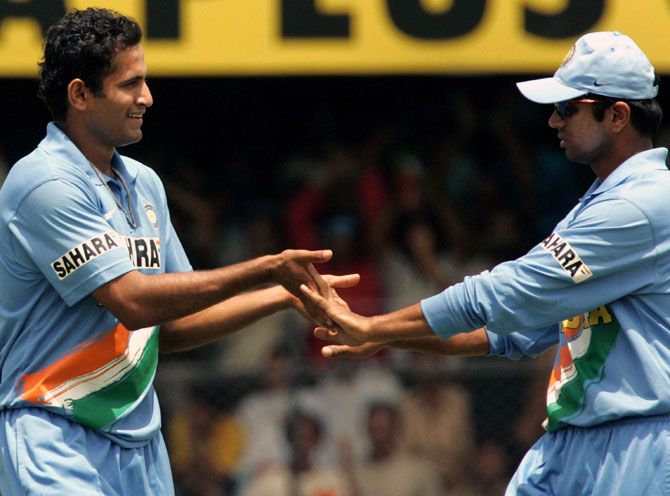
You played under quite a few captains during your career. Under whom did you enjoy playing the most where you would say your role was clearly defined and you got the backing of the team?
I really enjoyed playing under Rahul Dravid. He was very clear.
I also enjoyed playing under Sourav Ganguly, I enjoyed playing under Anil Kumble as well, but Dravid was very clear.
He wanted to make sure that people worked really hard, he wanted the team to grow.
That is why he left the captaincy as well even after winning the Test series in England in 2007. He was all about the team and the growth of the players in the team, that is why I enjoyed playing under him.
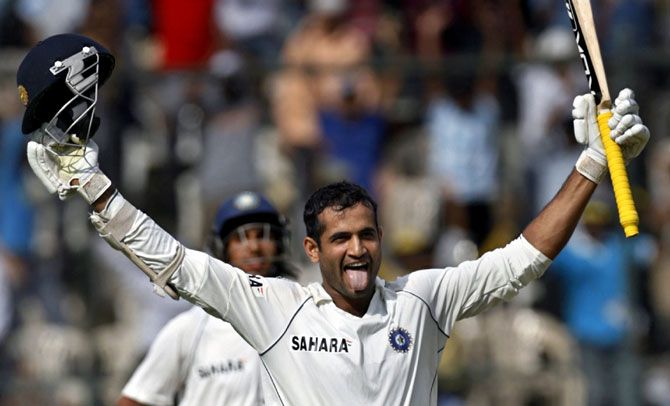
You made a good comeback in 2007 in the World T20 and also made it to the Test team and had a good consistent run for a couple of years.
But you suffered another injury setback in 2009 and after that you never really were able to get back to your best form.
Was it difficult to continue cricket when you have the fear of injury at the back of your mind?
It was a difficult time period of my career because I had the back injury in 2010 when the physio told me that I might not be able to play cricket again because I had five fractures.
I remember when the NCA (National Cricket Academy) sent me for my back injury, Patrick Farhat, the Australian physio, told me that I might have a problem walking in the future because of the back injury and that I need to stop playing cricket.
But I was very keen to make sure that whatever has happened has happened and I kept playing.
I told him just get me pain free and I will make a comeback because I want to play cricket and I will play if I get a chance.
And I did exactly that. I worked hard for a year in 2011, made a comeback in 2012 and I started doing well again.
I started swinging the ball, I was bowling really well and the confidence was coming.
So yes, 2009-2010 was a difficult year for my life and for my cricketing career, but then I made a comeback which was a great feeling for me when I look back.
There is saying 'girte hai ghudsawar maiden-e-jung main (the men who battle do fall).'
So you will get down, but you have to rise as well.
I did manage to get back after falling down and that was a very proud moment for me.
If you look back at your career, in hindsight would you have done things differently?
When people get experience they think about doing things differently, but like I said earlier whatever has happened has happened.
Whatever injuries I had, I couldn't have done much, but I might think sometimes that I could have worked less harder.
How would you like Irfan Pathan to be remembered as?
As a guy who gave everything to the team.

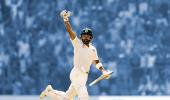

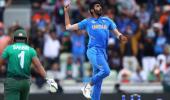








 © 2025
© 2025